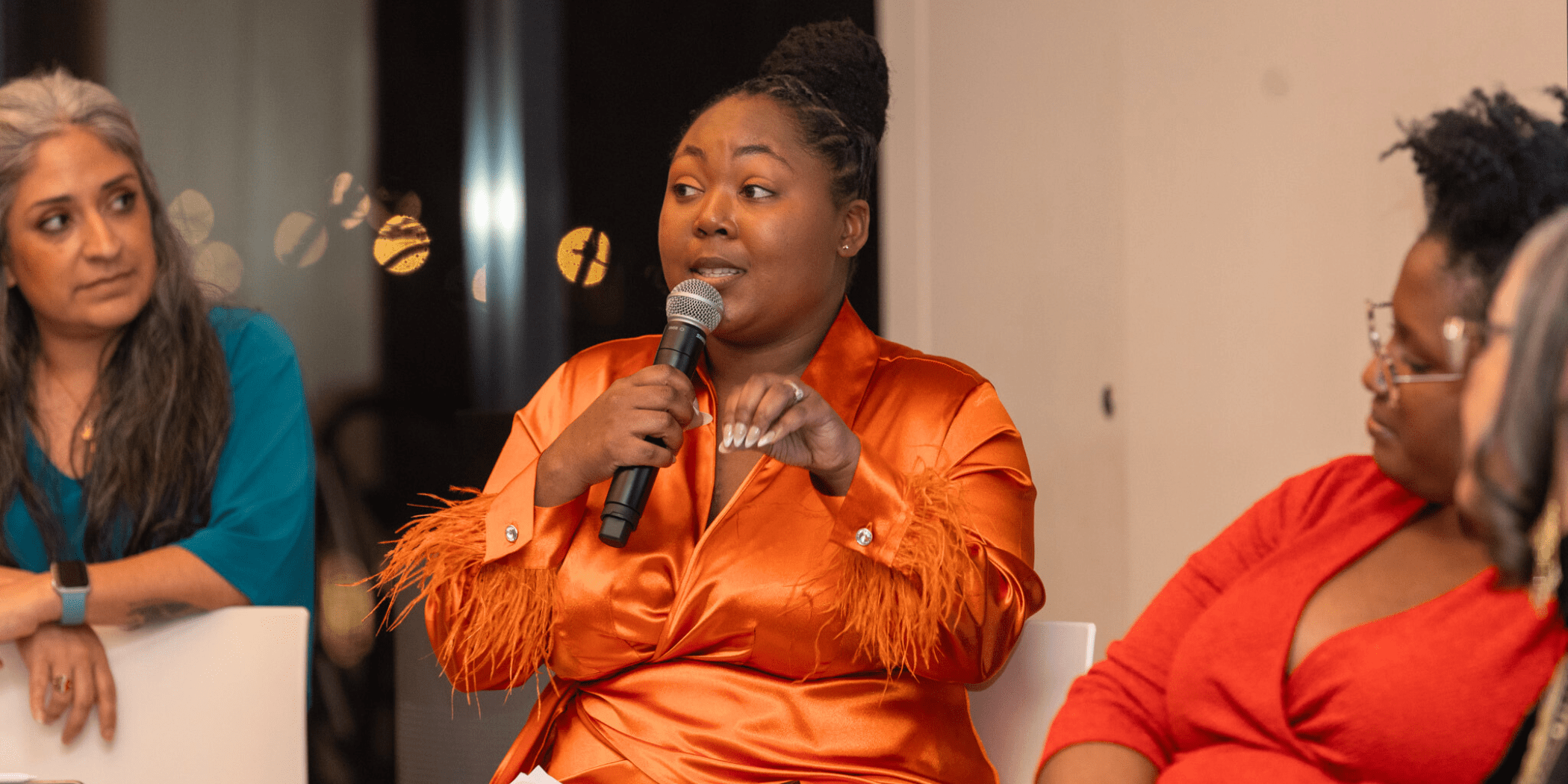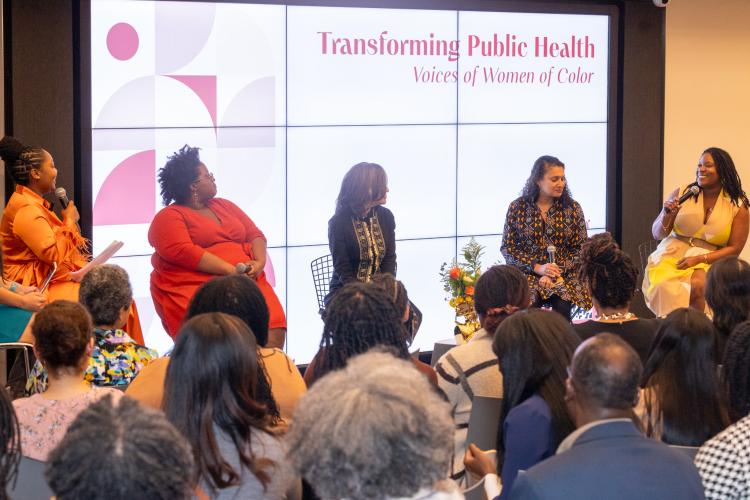
On Friday, Feb. 23, a pool of 16 leaders gathered at the Reservoir Center for Water Solutions with the purpose of bringing together powerful leaders and shaping the next generation of changemakers in public health. The leaders — all women of color in public health careers — discussed water solutions, letting flow a river of ideas and expertise. The panelists represented diverse skill sets and backgrounds united by their commitment to social justice, environmental health and clean water.
To a standing-room-only audience, the event highlighted a wealth of experience. Being in the room, along with more than 100 other attendees, and listening to the speakers “helps create a sense of community and inspire people in the field to work for what’s important,” said Barrie Pasternak, MPH ‘24.
Panel topics included environmental health and the water industry; health equity and policy; maternal and child health; and community, government and communications. Panelists discussed issues including environmental health and justice, health equity — including the significant disparity in maternal health for Black women — and the ways Black and ally communities can use policy and community engagement as a tool to drive systemic change.
“Our event aimed to spotlight diverse perspectives in the public health sector, particularly emphasizing the achievements of women of color,” said the event’s organizer, Taeilorae Levell-Young, MPH ‘24. “I wanted to create an inclusive space for exploration, focusing on students and young professionals, and I believe that was accomplished; I could see the fire reignited in everyone in the room! Many people texted me, including panelists who wanted to get back to the heart of public health, that let me know it was worth all of the sweat, tears, and time.”
Panelists were expert, informative, and inspiring. For example, in discussing environmental health and the water industry, Dr. Jalonne White-Newsome, a federal chief environmental justice officer at The White House Council on Environmental Quality, addressed issues of environmental justice. “When I think about sustainability, it’s about durability. It’s about longevity – and how do we achieve that across our communities if we let one community bear the brunt over and over again of negative disproportionate impacts?” she said. “To achieve sustainability, we have to advance environmental justice.”
In the evening’s second panel, Negin Fouladi, an SPH associate clinical professor, provided a primer on health equity, noting, “Health equity means having all people, all populations, having equal opportunity to have optimal health. That’s basic, 101 health equity.”
In terms of maternal and child health, Black women in America have a maternal mortality rate of 2.9 times that of white women. It is a systemic issue, driven by racism and unnuanced responses to the maternal health needs of women of color.
Solving this problem will take immense effort and engagement from all people — as one panelist put it, people need to “pass the fire” to effect change.
“I really want to encourage that we don’t all have to be biologists, that we need the arts, we need communications people, from all of those different walks to solve this problem,” said panelist Jarene Fleming, state breastfeeding coordinator for Virginia, a certified international lactation consultant, and board member for the Monetary Investment for Lactation Consultant Certification.
The evening concluded with a panel on community, government, and communications.
Dr. Margot Brown, the senior vice president of justice and equity at the Environmental Defense Fund told the audience to put community members first. “Remember,” she said, “the people closest to any problem are closest to the solution.”
Panelists encouraged that to take action, try not to get caught up in theories and ideal solutions. The most important part of working with a community? Involving the community itself. Ask what type of support they need and actively listen, panelists advised, or whether they need any at all. Communities know their needs best, and their voices should be heard first and loudest as public health professionals strive for equity for all.
Leaving the event, attendees felt inspired by the panelists’ stories of tenacity and perseverance, including Senam Attipoe, MPH ‘24 “Even though it’s daunting,” she said, “the work needs to be done and it can be done!”
- Ian Schuster ’23, MPH ’24
